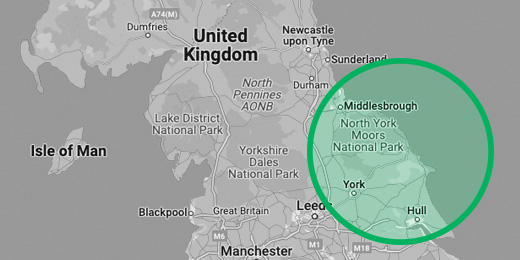The East Coast Cluster comprises two industrial regions of the UK – Teesside and Humber – situated adjacent to suitable storage sites in the North Sea. The cluster was developed from two adjacent CCUS hubs, Net Zero Teesside and Zero Carbon Humber, which were merged during the UK Government CCUS Cluster Sequencing process. Together they could capture and store up to 27 million tonnes of CO2 annually by the mid-2030s, accounting for almost half of all the emissions from the UK’s industrial clusters.
Humber is the UK’s highest-emitting industrial area. A consortium of 14 companies aims to decarbonize the region through low carbon hydrogen, carbon capture and carbon removal technology.
The hub concept was first developed in Teesside when OGCI Climate Investments acquired the original government-funded concept in 2016 and developed it into a commercial project, working with industries, interest groups and local and national government. The project is now being developed by a consortium of OGCI member companies, led by bp.
A newly built natural gas power plant with post-combustion carbon capture will anchor the Teesside project. It will be linked to a large pipeline with the capacity to transport carbon dioxide from many other sources, likely including a biomass powerplant, a hydrogen plant and a fertilizer plant.
The carbon dioxide from both hubs will be stored in a saline aquifer called the Endurance Reservoir, 145 km offshore and about 1.6 km below the bed of the North Sea. Geological assessments indicate that Endurance can safely store 450 MT/CO2, and other nearby storage sites have the potential to boost that to a billion tonnes. Storage will be managed by the Northern Endurance Partnership, a collaboration between bp, Equinor, National Grid, Shell and TotalEnergies, formed in 2020.
The East Coast Cluster could preserve livelihoods for thousands of people in the region. Between 2023 and 2050, it could support and/or create roughly 25,000 industrial jobs. In recognition of its potential, the UK government selected it as one of two CCUS clusters for fast-track development. The government recently shortlisted 14 capture projects, currently undergoing due diligence ahead of potential kick-off in the mid-2020s.


